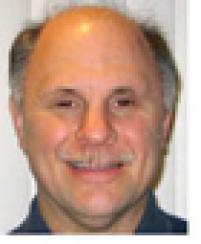The most famous Austrian this side of Arnold Schwarzenegger is having a tough time these days.
Christian Baha, who likes to poke fun at himself for mispronouncing the word “investor” in commercials for his hedge funds/managed futures fund, was among the worst performers in May. As a result, his TV commercials have all but disappeared. And Baha, who markets his computerized commodities trading strategy to the masses, is downsizing his firm and tinkering with his investment strategy.

The current losses come on the heels of substantial declines in 2009, when the less leveraged fund fell nearly 30 percent and the more leveraged one — by 1½ times— lost 44 percent. Sure, 2009 was a tough year for the kinds of funds Baha runs, but few fared as poorly as his.
In a regulatory filing, Superfund, which began its operations in 2002, attributed its May losses, in part to a mixture of long and short equity futures positions. It cites the “cracks in the global financial system” stemming from the sovereign debt problems in Europe, the “flash-crash” on May 6, and the subsequent market selloff at month-end. It also said the fund’s currency market trading suffered losses as instability in financial markets combined with geopolitical concerns resulted in a violent surge of assets into the perceived safety of the U.S. dollar.
On the other hand, long positions in the global bond futures markets provided positive returns as the sovereign debt crisis in the euro zone intensified, prompting the purchase of safe haven government securities.
The Austrian college dropout and former Vienna police officer used to liken his firm to the Merrill Lynch for managed futures, allowing investors to pony up as little as $5,000. Baha says his trading systems monitor and trade more than 100 futures contracts in eight core areas. He touts his trading systems as having been developed, tested and continually improved using 30 years of historical data.
In recent weeks, however, he has announced changes to this strategy. Beginning July 1, the firm will integrate a systematic, technical short-term trading strategy into the Fund’s primary trend-following methodology. “This short-term strategy seeks trading opportunities arising out of short term changes in futures and forward market prices, with trades lasting from less than a day to more than a week, and has exhibited low correlation to the trend-following methodology utilized by the Fund which is expected to diversify the Fund’s sources of return,” Superfund said in a regulatory filing.
Earlier this month, it also closed its sales offices in Singapore, Dubai, Sydney, Sao Paulo, Liechtenstein and Monaco and will now manage its operations out of Vienna, Hong Kong and New York, the firm said in a statement.








